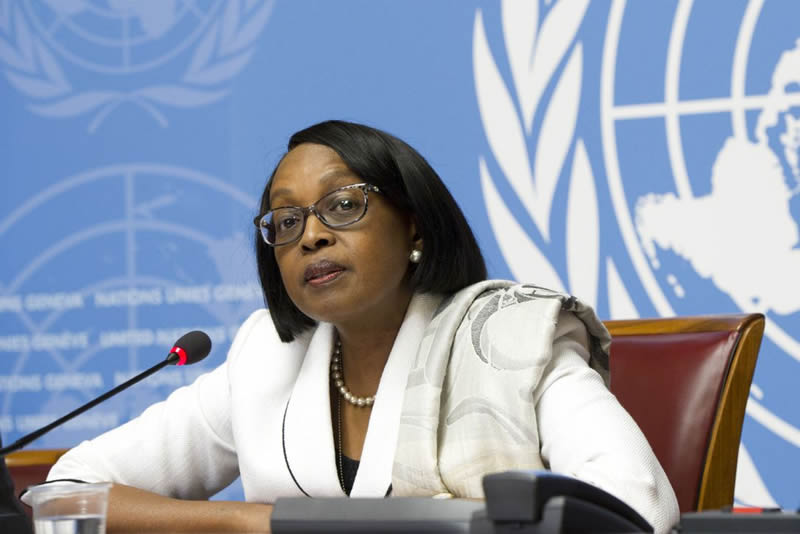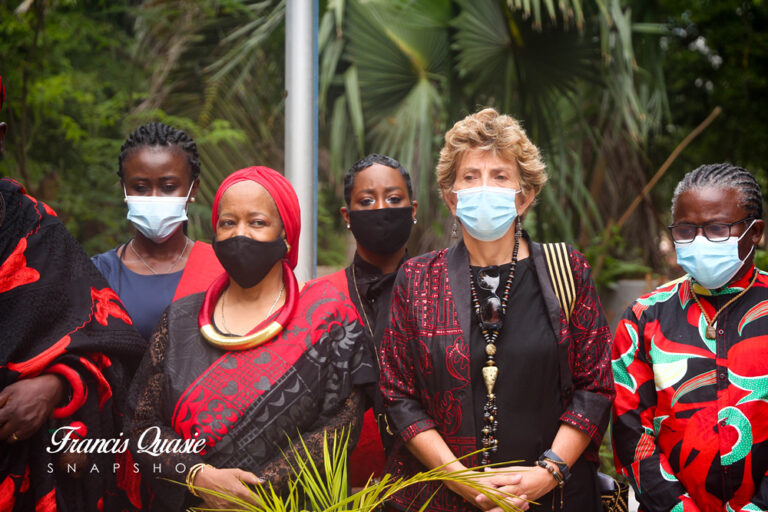Africa Faces Steep COVID-19 Surge
- Home
- Africa Faces Steep COVID-19 Surge

Africa Faces Steep COVID-19 Surge

The World Health Organisation (WHO) says the third wave of the COVID-19 pandemic is picking up with speed, spreading faster and hitting harder in Africa.
The WHO Regional Director for Africa, Dr Matshidiso Moeti, who said this, explained that with the rapid rise in case numbers and increasing reports of serious illnesses, the latest surge threatened to be Africa’s worst.
In a webinar, she said Africa was facing a fast-surging third wave of the COVID-19 pandemic, with cases spreading more rapidly and projected to soon overtake the peak of the second wave the continent witnessed at the start of 2021.
Cases
COVID-19 cases have risen for five consecutive weeks in Africa since the onset of the third wave on May 3, 2021.
As of June 20, that is, 48 days into the new wave, Africa had recorded around 474,000 new cases, a 21 per cent increase over figures for the first 48 days of the second wave.
Dr Moeti said at the current rate of infection, the ongoing surge was set to surpass the previous one by early July.
Reports from the WHO said the pandemic was resurging in 12 African countries and mentioned a combination of factors, including weak observance of public health measures, increased social interaction and movement, as well as the spread of variants, which it said were helping to power the new surge.
Dr Moeti said in the Democratic Republic of the Congo and Uganda, which were experiencing a COVID-19 resurgence, the Delta variant had been detected in most samples sequenced in the past month.
Across Africa, the Delta variant, first identified in India, had been reported in 14 countries, and according to Dr Moeti, “Africa can still blunt the impact of these fast-rising infections, but the window of opportunity is closing. Everyone everywhere can do his or her bit by taking precautions to prevent the transmission.”
She said the WHO was deploying more experts to some of the worst-affected countries, including Uganda and Zambia, as well as supporting South Africa-based regional laboratories to monitor variants of concern.
The WHO, she said, was also boosting innovative technological support to other laboratories in the region without sequencing capacities to better monitor the evolution of the virus, adding that in the next six months, it aimed at an eight- to ten-fold increase in the samples sequenced each month in Southern African countries.
COVID-19 upsurge
Dr Moeti said the COVID-19 upsurge had come as the vaccine supply crunch persisted, adding that 18 African countries had used over 80 per cent of their COVAX vaccine supplies, with eight having exhausted their stocks, while another 21 countries had administered over 50 per cent of their supplies.
Despite the progress, she said, just over one per cent of Africa’s population had been fully vaccinated.
Globally, around 2.7 billion doses have been administered, of which just under 1.5 per cent has been administered on the continent.
“With high vaccination rates, it’s shaping up into a summer of freedom, family and fun for millions of people in richer countries. This is understandable and we all long for the same joys,” she said.
“Vaccine shortages are already prolonging the pain of COVID-19 in Africa. Let’s not add injury to injustice. Africans must not face more restrictions because they are unable to access vaccines that are only available elsewhere. I urge all regional and national regulatory agencies to recognise all the vaccines Emergency Use listed by WHO,” she added.
In the European Union, a COVID-19 passport system for vaccination, testing and recovery took effect from July 1, this year. However, Dr Moeti said only four of the eight vaccines listed by the WHO for emergency use were recognised by the European Medicines Agency for the passport system.
In Africa, a WHO survey of 45 countries shows that their borders are open for air travel and only Mauritius will require proof of vaccination for international travellers from July 15, 2021.
Most countries do not give quarantine exemptions for travellers who are fully vaccinated against the COVID-19 and require a negative COVID-19 test, Dr Moeti added.
Source: Graphic Online
Classic Ghana
Classic Ghana brings you into a fun world of arts, entertainment, fashion, beauty, photography, culture and all things in between. Let’s explore these together!


